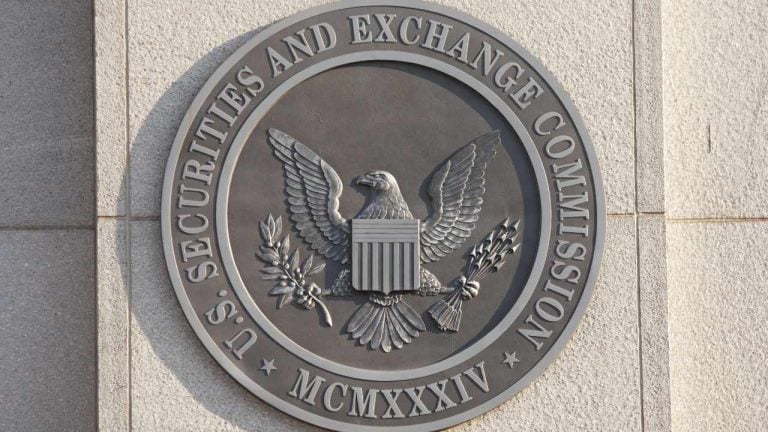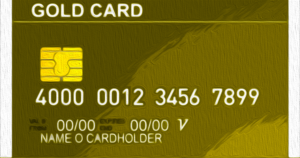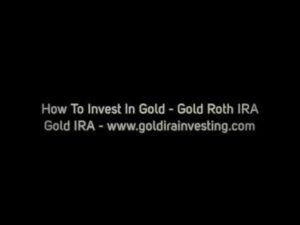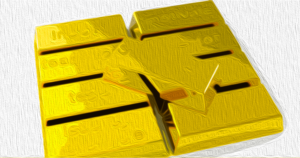
Coinbase Takes Legal Action Against SEC
The U.S. Securities and Exchange Commission (SEC) has rejected cryptocurrency exchange Coinbase's petition for regulatory clarity in the crypto industry. SEC Chairman Gary Gensler backs his agency's decision to deny Coinbase's petition. In response, Coinbase has pursued legal action against the securities regulator to challenge this decision.
Coinbase Challenges SEC's Decision in Court
The U.S. Securities and Exchange Commission (SEC) has denied Coinbase Global's Petition for Rulemaking. The crypto exchange filed the petition in July last year, seeking regulatory clarity, including "potential rules to identify which digital assets are securities." With no response from the SEC for 18 months, the crypto exchange escalated the matter to court, prompting the agency to respond with the denial on Friday.
SEC Chair Gary Gensler issued a statement regarding the denial:
"I was pleased to support the Commission's decision for three reasons."
"First, existing laws and regulations apply to the crypto securities markets. Second, the SEC addresses the crypto securities markets through rulemaking as well. Third, it is important to maintain Commission discretion in setting its own rulemaking priorities," Gensler detailed.
Coinbase's chief legal officer, Paul Grewal, commented on the situation: "Today the SEC denied Coinbase's petition for rules for crypto. After 18 months of silence, we went to court to get the response the law requires. With appreciation for the Third Circuit, later today we'll again seek its help by challenging the SEC's abdication of its duty."
In a follow-up post, Grewal revealed:
"Promise made, promise kept: we are now on file with the Third Circuit to challenge the SEC's arbitrary and capricious denial of our petition for crypto rulemaking. We again appreciate the court's consideration."
The CEO of Coinbase, Brian Armstrong, wrote: "We went to court to challenge the SEC's refusal to create clear rules for the industry — and it worked (a court compelled them to respond)." The executive added: "Now that they've formally responded (with a no!) we can challenge their response in court, which helps us get one step closer to regulatory clarity. The question is why doesn't the SEC want to clarify outstanding regulatory questions for the crypto industry?"
What are your thoughts on the SEC denying Coinbase's petition seeking regulatory clarity for the crypto industry? Share your opinions in the comments section below.
Frequently Asked Questions
What precious metal should I invest in?
This depends on what risk you are willing take and what kind of return you desire. Gold has been traditionally considered a haven investment, but it's not always the most profitable choice. If you are looking for quick profits, gold might not be the right investment. Silver is a better investment if you have patience and the time to do it.
If you're not looking to make quick money, gold is probably your best choice. Silver might be a better investment option if steady returns are desired over a long period of time.
What is a Precious Metal IRA, and how can you get one?
A precious metal IRA allows for you to diversify your retirement savings in gold, silver, palladium and iridium. These metals are known as “precious” because they are rare and extremely valuable. These are good investments for your cash and will help you protect yourself from economic instability and inflation.
Precious metals are often referred to as “bullion.” Bullion refers actually to the metal.
Bullion can be purchased through many channels including online retailers and large coin dealers as well as some grocery stores.
A precious metal IRA lets you invest in bullion direct, instead of purchasing stock. This allows you to receive dividends every year.
Precious metal IRAs do not require paperwork nor annual fees, unlike regular IRAs. Instead, you pay a small percentage tax on the gains. You can also access your funds whenever it suits you.
How much of your portfolio should be in precious metals?
Before we can answer this question, it is important to understand what precious metals actually are. Precious metals have elements with an extremely high worth relative to other commodity. They are therefore very attractive for investment and trading. Gold is today the most popular precious metal.
However, many other types of precious metals exist, including silver and platinum. The price for gold is subject to fluctuations, but stays relatively stable in times of economic turmoil. It is also relatively unaffected both by inflation and deflation.
All precious metals prices tend to rise with the overall market. However, the prices of precious metals do not always move in sync with one another. For instance, gold's price will rise when the economy is weak, while precious metals prices will fall. Investors are more likely to expect lower interest rates making bonds less attractive investments.
When the economy is healthy, however, the opposite effect occurs. Investors favor safe assets like Treasury Bonds, and less precious metals. These precious metals are rare and become more costly.
To maximize your profits when investing in precious metals, diversify across different precious metals. Furthermore, because the price of precious Metals fluctuates, it is best not to focus on just one type of precious Metals.
What are the pros & cons of a Gold IRA?
The main advantage of an Individual Retirement Account (IRA) over a regular savings account is that you don't have to pay taxes on any interest earned. An IRA is a great option for those who want to save money, but don't want tax on any interest earned. There are some disadvantages to this investment.
To give an example, if your IRA is withdrawn too often, you can lose all your accumulated funds. You might also not be able to withdraw from your IRA until the IRS deems you to be 59 1/2. If you do withdraw funds from your IRA you will most likely be required to pay a penalty.
Another problem is the cost of managing your IRA. Most banks charge 0.5% to 2.0% per annum. Others charge management fees that range from $10 to $50 per month.
If you prefer to keep your money outside a bank, you'll need to purchase insurance. Many insurers require that you own at least one ounce of gold before you can make a claim. You might be required to buy insurance that covers losses up to $500,000.
If you decide to open a gold IRA, it is important to know how much you can use. Some providers restrict the amount you can own in gold. Others let you choose your weight.
You'll also need to decide whether to buy physical gold or futures contracts. Physical gold is more expensive than gold futures contracts. Futures contracts allow you to buy gold with more flexibility. Futures contracts allow you to create a contract with a specified expiration date.
It is also important to choose the type of insurance coverage that you need. Standard policies don't cover theft protection, loss due to fire, flood or earthquake. It does provide coverage for damage from natural disasters, however. If you live in a high-risk area, you may want to add additional coverage.
Apart from insurance, you should consider the costs of storing your precious metals. Storage costs are not covered by insurance. Banks charge between $25 and $40 per month for safekeeping.
Before you can open a gold IRA you need to contact a qualified Custodian. A custodian is responsible for keeping track of your investments. They also ensure that you adhere to federal regulations. Custodians don't have the right to sell assets. Instead, they must maintain them for as long a time as you request.
Once you've chosen the best type of IRA for you, you need to fill in paperwork describing your goals. You must include information about what investments you would like to make (e.g. stocks, bonds and mutual funds). Your monthly investment goal should be stated.
Once you have completed the forms, you will need to mail them to your provider with a check and a small deposit. The company will review your application and send you a confirmation letter.
Consider consulting a financial advisor when opening a golden IRA. Financial planners are experts at investing and can help you determine which type of IRA is best for you. They can help you find cheaper insurance options to lower your costs.
How do I Withdraw from an IRA with Precious Metals?
First, you must decide if you wish to withdraw money from your IRA account. You should also ensure that you have enough money to cover any fees and penalties associated with withdrawing funds.
A taxable brokerage account is a better option than an IRA if you are prepared to pay a penalty for early withdrawals. If you decide to go with this option, you will need to take into account the taxes due on the amount you withdraw.
Next, determine how much money you plan to withdraw from your IRA. This calculation is dependent on several factors like your age when you take the money out, how long you have had the account, and whether or not your plan to continue contributing.
Once you know what percentage of your total savings you'd like to convert into cash, you'll need to determine which type of IRA you want to use. Traditional IRAs allow for you to withdraw funds without tax when you turn 59 1/2. Roth IRAs, on the other hand, charge income taxes upfront but you can access your earnings later and pay no additional taxes.
After these calculations have been completed, you will need to open a brokerage bank account. Brokers often offer promotional offers and signup bonuses to encourage people into opening accounts. It is better to open an account with a debit than a creditcard in order to avoid any unnecessary fees.
You will need a safe place to store your coins when you are ready to withdraw from your precious metal IRA. Some storage facilities will accept bullion bars, others require you to buy individual coins. You will need to weigh each one before making a decision.
Bullion bars are easier to store than individual coins. However, you'll need to count every coin individually. However, keeping individual coins in a separate place allows you to easily track their values.
Some people prefer to keep their coins in a vault. Some people prefer to store their coins safely in a vault. Whatever method you choose to store your bullion, you should ensure it is safe and secure so you can enjoy its many benefits for many years.
Statistics
- Contribution limits$6,000 (49 and under) $7,000 (50 and up)$6,000 (49 and under) $7,000 (50 and up)$58,000 or 25% of your annual compensation (whichever is smaller) (lendedu.com)
- If you take distributions before hitting 59.5, you'll owe a 10% penalty on the amount withdrawn. (lendedu.com)
- Indeed, several financial advisers interviewed for this article suggest you invest 5 to 15 percent of your portfolio in gold, just in case. (aarp.org)
- Gold is considered a collectible, and profits from a sale are taxed at a maximum rate of 28 percent. (aarp.org)
- Instead, the economy improved, stocks rebounded, and gold plunged, losing 28 percent of its value in 2013. (aarp.org)
External Links
law.cornell.edu
- 7 U.S. Code SS7 – Designation boards of trade as contract market authorities
- 26 U.S. Code SS 408 – Individual retirement accounts
bbb.org
wsj.com
- Saddam Hussein's Invasion Helped Uncage a Bear In 1990 – WSJ
- You want to keep gold in your IRA at home? It's Not Exactly Legal – WSJ
investopedia.com
- Are You a Good Candidate for a Gold IRA
- What are the Options? Types, Spreads, Example, and Risk Metrics
How To
How to hold physical gold in an IRA
The easiest way to invest is to buy shares in companies that make gold. But, this approach comes with risks. These companies may not survive the next few years. Even if they survive, there's always the risk that they will lose money due fluctuations in gold prices.
Another option is to purchase physical gold. You can either open an account with a bank, online bullion dealer, or buy gold directly from a seller you trust. This option offers the advantages of being able to purchase gold at low prices and easy access (you don’t need to deal directly with stock exchanges). It is easier to view how much gold has been stored. A receipt will be sent to you indicating exactly how much you paid. This will allow you to see if there were any tax omissions. You have less risk of theft when investing in stocks.
However, there are some disadvantages too. For example, you won't benefit from banks' interest rates or investment funds. You can't diversify your holdings, and you are stuck with the items you have bought. The taxman might also ask you questions about where your gold is located.
If you'd like to learn more about buying gold in an IRA, visit the website of BullionVault.com today!
—————————————————————————————————————————————————————————————-
By: Kevin Helms
Title: SEC Rejects Coinbase's Petition for Regulatory Clarity in Crypto Industry
Sourced From: news.bitcoin.com/sec-denies-coinbases-petition-for-clear-crypto-regulation-exchange-responds-by-taking-the-regulator-to-court/
Published Date: Sun, 17 Dec 2023 03:00:41 +0000


















